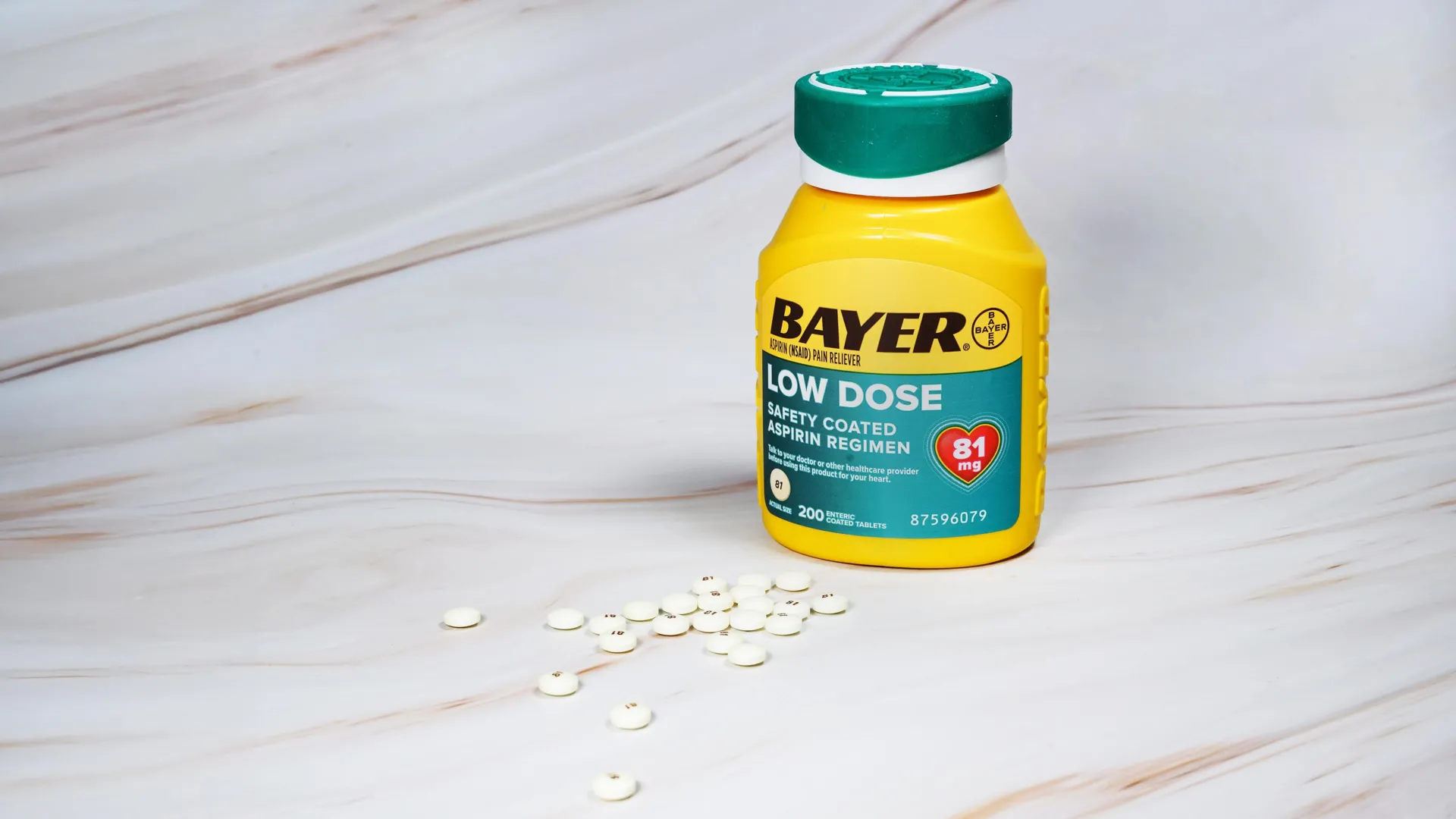Low-dose aspirin may increase anaemia risk in healthy older adults: study
- Date:
- June 20, 2023
- Source:
- Monash University
- Summary:
- A large Monash University study has revealed that daily aspirin raises anemia risk by 20% in adults aged 70 and older. Over nearly five years, participants taking low-dose aspirin showed lower hemoglobin and iron levels than those on placebo. Researchers suggest routine blood monitoring for seniors on long-term aspirin and advise against stopping the medication without medical guidance.
- Share:

A new study analyzing data from the landmark ASPREE trial has found that prolonged daily aspirin use increases the risk of anemia by 20 per cent in people mostly aged 70 and over.
The results have prompted researchers to suggest that regular monitoring for anemia be considered for older adults who take low-dose aspirin, and if older adults have concerns about their health or medications they should discuss them with their GP.
The results have prompted researchers to suggest that regular monitoring for anemia be considered for older adults who take low-dose aspirin and to discuss any concerns about their health or medications with their GP.
The Monash University-led study, published in Annals of Internal Medicine, followed 18,153 initially healthy older adults in Australia and the USA and recorded incidents of anemia over an average 4.7 years.
The risk of developing anemia was found to be 20 per cent higher in the aspirin group compared to those in the placebo group.
It was the largest study to investigate anemia in older people as part of a randomized controlled trial, ASPREE (ASPirin in Reducing Events in the Elderly) -- with half the participants taking a placebo and the other half a daily low dose (100mg) of aspirin.
Anaemia is commonly experienced by older adults, potentially affecting overall function and increasing fatigue, disabilities, depressive symptoms and cognitive problems.
In addition to a higher risk of anemia, blood tests revealed a faster decline of hemoglobin and reduced ferritin (a protein that carries iron) levels in the aspirin group compared to the placebo group.
Lead author, Associate Professor Zoe McQuilten from Monash University's School of Public Health and Preventive Medicine, said while bleeding was a known side-effect of aspirin, few previous studies had looked at the effect of prolonged aspirin use on the progressive development of anemia in older adults.
"This study gives a clearer picture of the additional risk of becoming anaemic with aspirin use and the impact is likely to be greater in older adults with underlying diseases, such as kidney disease," Associate Professor McQuilten said.
Associate Professor McQuilten said the new data gave doctors insight into the risk of anemia from prolonged aspirin use by their older patients. "Older adults are more likely to become anemic generally and now doctors can potentially identify patients at higher risk of developing anemia," she said.
Associate Professor McQuilten urged patients to follow the advice of their doctor about their daily use of aspirin. She cautioned that for some older adults, aspirin was recommended as a valuable therapy to prevent recurring heart attacks or stroke. "Patients should not change their aspirin regimen without speaking to their GP," she said.
Story Source:
Materials provided by Monash University. Note: Content may be edited for style and length.
Journal Reference:
- Zoe K. McQuilten, Le Thi Phuong Thao, Sant-Rayn Pasricha, Andrew S. Artz, Michael Bailey, Andrew T. Chan, Harvey Jay Cohen, Jessica E. Lockery, Anne M. Murray, Mark R. Nelson, Hans G. Schneider, Rory Wolfe, Robyn L. Woods, Erica M. Wood, John J. McNeil. Effect of Low-Dose Aspirin Versus Placebo on Incidence of Anemia in the Elderly. Annals of Internal Medicine, 2023; DOI: 10.7326/M23-0675
Cite This Page: